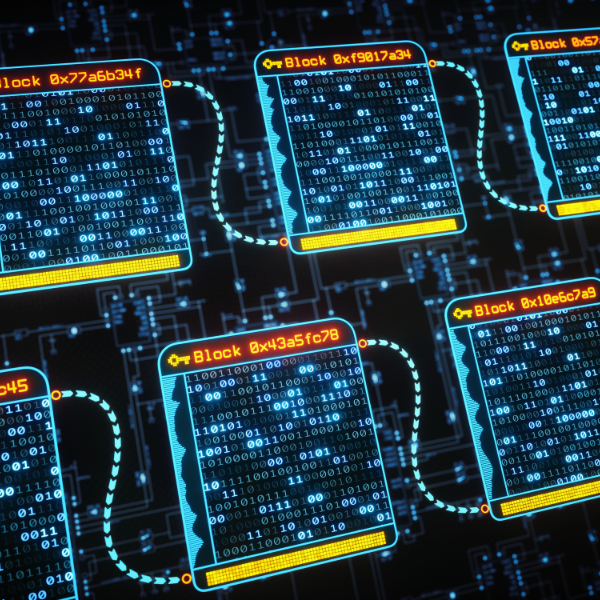When you hear the word blockchain technology, you probably think of cryptocurrencies like Bitcoin, but the potential of decentralized consensus goes far beyond digital gold or the mafia's uncensorable payments. While dedicated Bitcoin enthusiasts are necessary to maintain a global independent payment chain, the real power of decentralization is just beginning to unfold.
NFTs are digital assets that can represent ownership, intellectual property or unique items on the blockchain. They offer an alternative to all the centralized systems that currently govern our lives.
Today, our society is heavily dependent on databases managed by Trusted Third Parties (TTP), such as banks, Google and Facebook, but also government institutions such as the Swedish Tax Agency. These TTPs control everything from hotel bookings and taxi services to voting rights and financial transactions.
While TTPs are necessary to maintain order in our complex world, they also present challenges. Centralized databases can stifle competition and create barriers to entry for new companies. This has become evident in the wake of concerns surrounding tech giants such as the FAANG (Facebook, Amazon, Apple, Netflix and Google), as competition regulators struggle to deal with the growing power and influence of these companies.
By leveraging decentralized systems, we can reduce reliance on TTPs and empower individuals to regain control of their digital lives. Blockchain technology offers a safer, more transparent and efficient alternative to traditional databases.
The real potential of NFTs lies in the ability to revolutionize industries such as art, music, gaming and real estate, among other things. By eliminating intermediaries, the NFT technology enables creators to retain more value from their work and offer new opportunities for engagement and collaboration.
So while cryptocurrencies like Bitcoin have paved the way for decentralized finance, it's the technology behind NFTs that will really change our society. As we embrace this new era of digital assets, we can look forward to a future where centralized databases and TTPs no longer dictate our lives. Instead, blockchain technology will provide the foundation for a more fair, transparent and inclusive world.
The power of decentralization: balancing convenience and control
NFT and blockchain technology have the potential to address some of the most pressing issues surrounding centralized systems. To address these concerns, regulators may require companies and government agencies to provide first-class access to underlying data. This would enable the market to create innovative solutions without relying solely on centralized authorities.
One problem with centralized TTPs is that they create vulnerable choke points that can be exploited to take control of society. To better understand this, we can look at some examples.
Ten years ago, taxis operated decentralized, with minimal information about their customers. Then came Uber and Lyft, which revolutionized the industry by offering a more convenient and efficient service. However, this centralization comes at a cost. A future dictator could easily ban someone from using Uber or Lyft, while it would be nearly impossible to stop them from booking a traditional taxi.
Similarly, tech giants like Facebook, Apple, Amazon and Microsoft have undoubtedly added enormous value to our lives, but their centralization also makes them vulnerable to being hijacked by malicious actors.
Society tends to focus on everyday risks, such as crime, drugs, money laundering, tax evasion and terrorism. And while these issues are crucial, there are existential risks posed by potential dictators. As history has shown time and time again, centralized systems can be exploited by those seeking to exercise absolute power, leading to disastrous consequences.
Benjamin Franklin's famous quote, “Those who would give up essential liberty, to purchase a little temporary security, deserve neither liberty nor security", is a critical reminder of the importance of finding a balance between security and liberty.
While it is important to address everyday societal issues, we must also be wary of the double-edged sword of centralization. NFT and blockchain technology provide a path towards a more decentralized world, less susceptible to the risks of a single point of control.
As countries like China continue to centralize, it is crucial for the EU and the US to consider alternative approaches that prioritize decentralization. Embracing NFTs and the technology behind them can help society find a balance between the convenience that centralized systems offer and the freedom and control that decentralized options provide.
The future of NFTs: Total transformation of society
To summarize, blockchain technology, exemplified by Bitcoin, has successfully solved decentralized consensus. This breakthrough has revealed the problems with centralized consensus, including micro problems (anti-competitive nature) and macro problems (existential risks) associated with TTP.
Now let's connect the dots between NFTs and decentralized social systems.
Despite the initial excitement around decentralized systems, progress has been slow due to crypto funding and regulatory constraints. But NFTs offer a unique opportunity to overcome these challenges:
a) They are decentralized
b) They are protected by freedom of expression
c) They capture the non-fungible nature of the world
d) They can be used to build decentralized, social organizations
While NFTs are undoubtedly changing the art world already, its impact extends far beyond art. NFTs will soon transform brands, culture and even create decentralized alternatives to centralized organizations.
Take Bored Apes, for example. At first glance, they may seem like an odd collector's item. However, they could very well be seen as a decentralized competitor to established brands such as NIKE or Adidas.
As we continue to explore the world of NFTs, we must be aware of their wider implications. By embracing their potential to decentralize power, we can foster a more inclusive, resilient and innovative society – one where the stranglehold of centralized systems gives way to a vibrant, connected and decentralized world.





